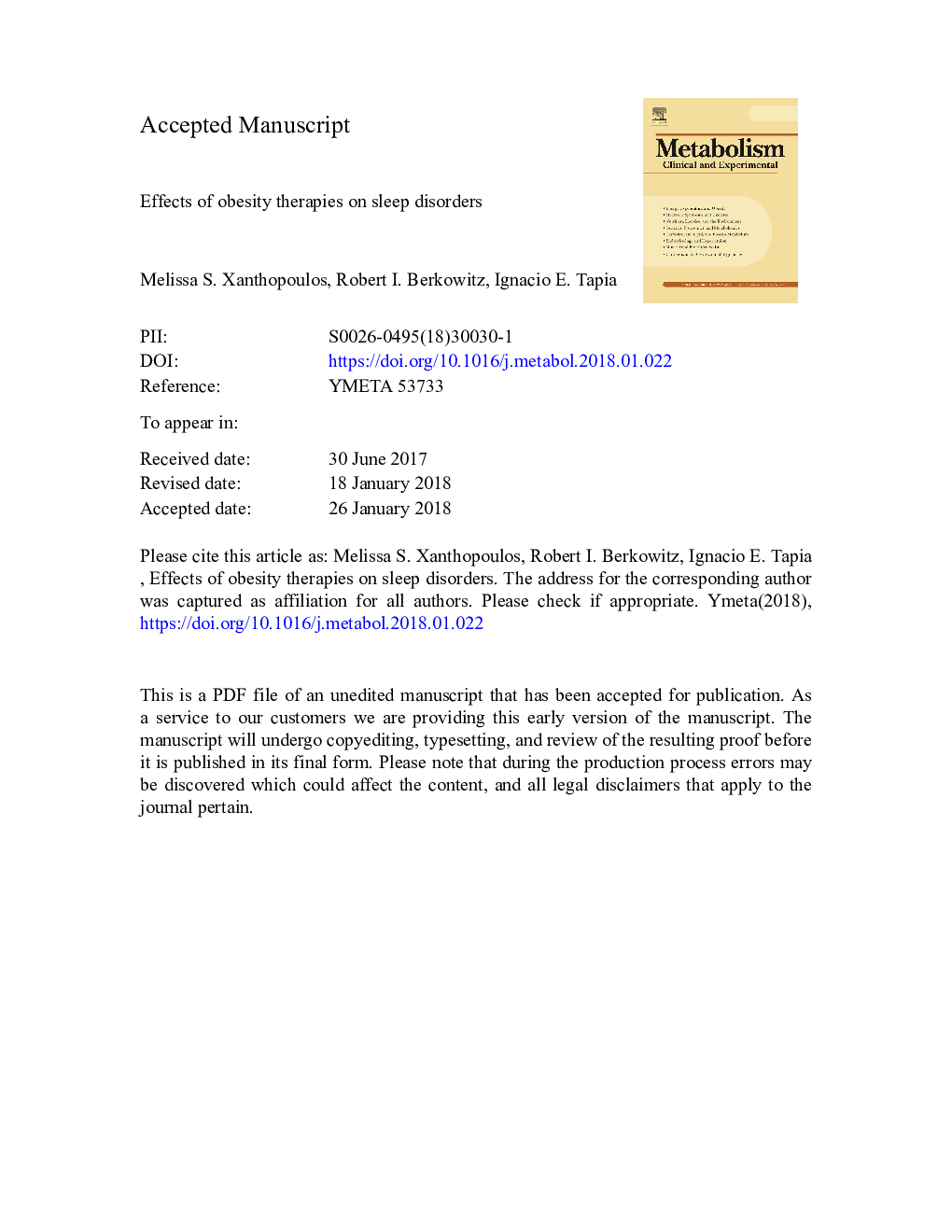| Article ID | Journal | Published Year | Pages | File Type |
|---|---|---|---|---|
| 8632958 | Metabolism | 2018 | 33 Pages |
Abstract
Obesity is a significant risk factor for obstructive sleep apnea syndrome (OSAS), and has also been linked to reductions in sleep quality and quantity. Weight loss has been shown to be an effective treatment for improving OSAS; however, there is a high degree of variability in improvements of OSAS in response to weight loss. There are three modalities of obesity therapies: 1) lifestyle modification, which includes changes in dietary intake and physical activity, along with behavioral interventions; 2) pharmacologic agents; and 3) bariatric surgery. Individuals have a highly variable response to the various obesity interventions, and maintenance of weight loss can be especially challenging. These factors influence the effect of weight loss on sleep disorders. There is still a need for large, well-controlled studies examining short- and long-term efficacy of weight loss modalities and their impact on long-term treatment of OSAS and other sleep parameters, particularly in youth. Nonetheless, given our current knowledge, weight reduction should always be encouraged for people coping with obesity, OSAS, and/or sleep disruptions and resources identified to assist patients in choosing a weight loss approach that will benefit them the most.
Related Topics
Life Sciences
Biochemistry, Genetics and Molecular Biology
Endocrinology
Authors
Melissa S. Xanthopoulos, Robert I. Berkowitz, Ignacio E. Tapia,
